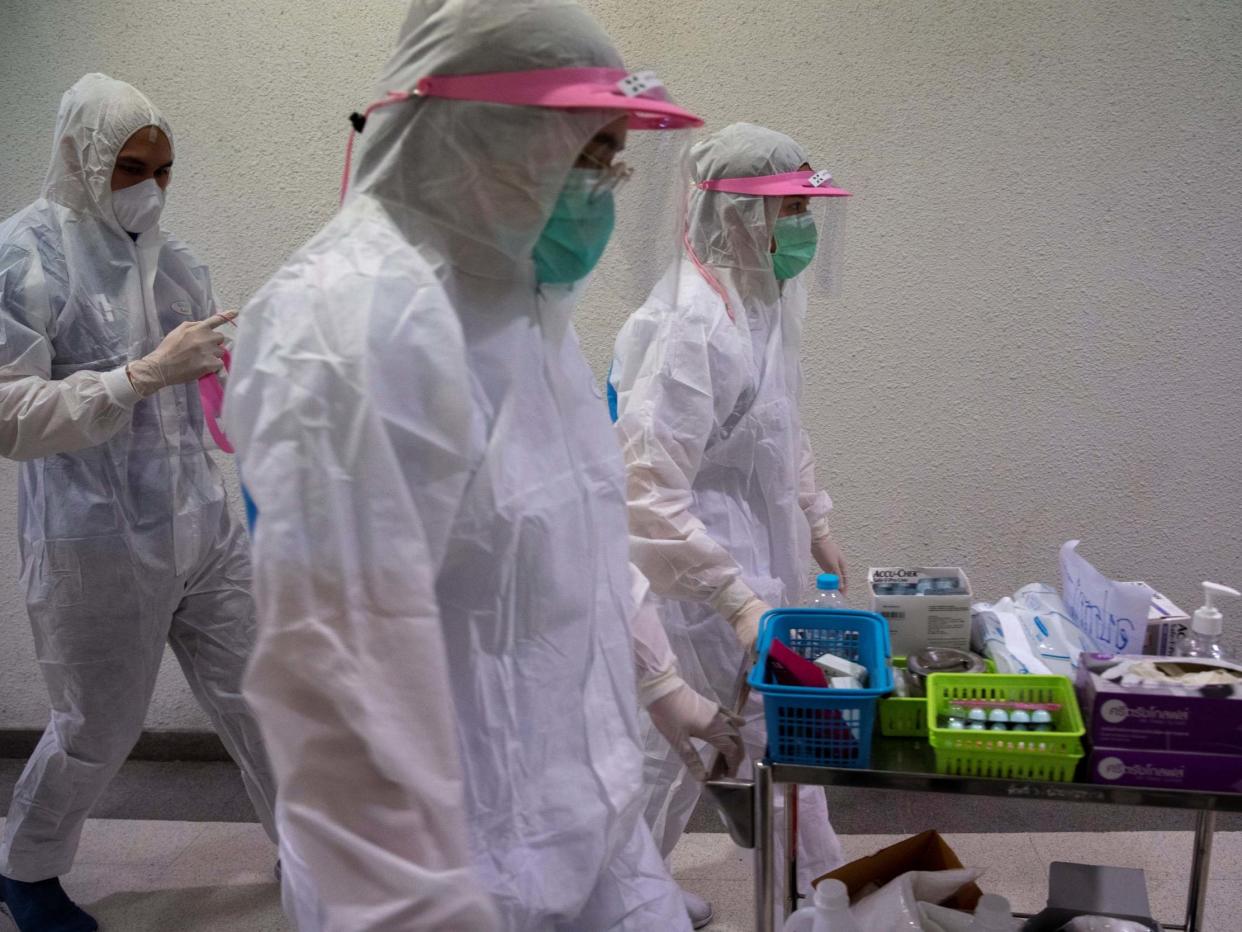Coronavirus news you might have missed overnight: Scientists find patients are most infectious in first week and government admits only 30 British-built ventilators will reach NHS next week

The coronavirus pandemic continues to cause chaos around the UK and around the world.
Here’s your morning briefing of everything you may have missed over night.
Coronavirus patients most infectious in first week of symptoms, scientists find
Coronavirus sufferers are most likely to pass on the virus during their first week of symptoms, new research suggested.
The study said some of those beyond their tenth day of symptoms could safely be allowed home to self-isolate, freeing up much-needed hospital beds.
Scientists who analysed data from nine patients in Germany with mild symptoms found that the virus spread actively in the upper respiratory tract — the nose, mouth and throat.
A loss of sense of smell and taste have been widely pinpointed as early symptoms.
They said they could also isolate an infectious form of the virus from samples taken from the throat and lungs of the patients until day eight of symptoms - but two patients, who showed early signs of pneumonia, still shed high levels of the virus in their sputum until day 10 or 11.
Only 30 British-built ventilators to arrive in NHS next week, government admits
The government admitted only 30 new British-built ventilators will be delivered to the NHS next week – not the thousands previously suggested.
Cabinet office minister Michael Gove on Tuesday said the "first of thousands" of new devices manufactured in the UK would be sent to the front line next week but did not specify how many would be in the first delivery.
Officials admitted on Wednesday that the first batch will only include 30 ventilators, with hundreds more expected in the coming weeks.
The NHS currently has about 8,000 ventilators to treat coronavirus patients but another 30,000 devices will be needed to cope with the expected peak of the outbreak in April.
‘More than 1.7 million may have had disease’ in UK according to NHS assessments
New figures from NHS 111 online show there were 1,496,651 web-based assessments which flagged potential coronavirus cases based on people’s symptoms between 18 March and 31 March.
A further 243,543 assessments via the NHS 111 and 999 phone lines also concluded people had possibly contracted the disease.
It suggests there could potentially be 1.7 million people with Covid-19 in the UK.
But the assessment numbers do not necessarily relate to individual people, the NHS said, as it is possible people have sought help more than once or through various channels.
‘Listen to government advice’ pleads family of youngest coronavirus victim in UK
The family of a 13-year-old boy who died after contracting coronavirus pleaded for people to “listen to government advice” and stay home.
Ismail Mohamed Abdulwahab, from Brixton, in southeast London, died in hospital on Monday despite having no underlying health conditions.
Paying tribute to Ismail, the teenager’s family said they wanted to “re-iterate the need for people to listen to government guidance”.
“Please do everything you can to ensure that we adhere to social distancing; that people stay at home as much as they possibly can, to protect the NHS and save lives,” they added.
It came the same day London mayor Sadiq Khan said too many people are still not staying home after alarming images emerged of passengers cramming on to a platform at North Acton station.
Read more
When can we really expect coronavirus to end?
Everything you need to know on supermarket delivery slots
The dirty truth about washing your hands
Which countries around the world has coronavirus spread to?
Listen to the latest episode of The Independent Coronavirus Podcast


